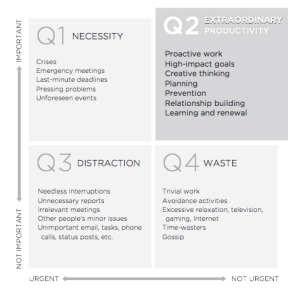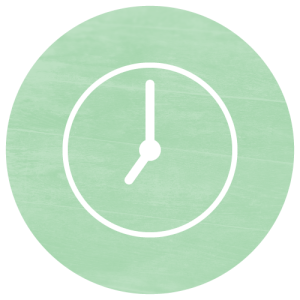The 5 Choices
Author(s): Kory Kogon / Adam Merrill / Leena Rinne
Form: Hardcover / Abridged Audiobook Cds
Pages: 288
Summary:
The time management experts at FranklinCovey share their five critical techniques for avoiding distractions and paying focused attention to our most important goals and tasks in our daily lives. This is accomplished by understanding and implementing the 5 choices.
Structure:
The 1st two choices fall under the DECISION Category:
Choice #1: Act on the Important
Choice #2: Go for Extraordinary, Don’t Settle for Ordinary
The 2nd two choices fall under the ATTENTION Category:
Choice #3: Schedule the Big Rocks, Don’t Sort Gravel
Choice #4: Rule Your Technology, Don’t Let It Rule You
And the last of the 5 choices falls under the ENERGY Category:
Choice #5: Fuel Your Fire, Don’t Burn Out
Here is a detailed description of each of the 5 Choices:
This book is based from wealth of knowledge of Franklin Covey’s rock solid concepts. They’ve updated and repacked the content to make it current and relevant for today. *Here’s a summary of each of the 5 Choices:
Choice 1 – Act on the Important, Don’t React to the Urgent
This choice helps you to discern the important from the less and not important, as well as how to increase your ROM (return on the moment) in the midst of fierce distractions. In today’s world, you are drowning in email, overwhelmed with demands, and trying to do more with less.
Choice 2 – Go for Extraordinary, Don’t Settle for Ordinary
This choice helps guide your decision making through a framework of what success looks like in your current, most important roles. You want to make a difference, but competing priorities often prevent you from achieving extraordinary results. With Choice 2, you will refine your current roles in terms of extraordinary results to achieve high-priority goals.
Choice 3 – Schedule the Big Rocks, Don’t Sort Gravel
This choice provides you with tips and tools to plan weekly and daily to execute with excellence on the most important things. The crushing increase in workday pressures can make you feel helpless and out of control. With Choice 3, you will regain control of your work and life through a cadence of planning and execution that produces extraordinary outcomes. Big Rocks = Priorities / Gravel = the Details.
Choice 4 – Rule Your Technology, Don’t Let It Rule You
This choice provides you with tips and tools to make technology work for you, not against you. Turn your technology into a productivity engine. An electronic avalanche of email, texts, and social-media alerts seriously threaten productivity as never before. With choice 4, you will leverage your technology and fend off distractions. This was a big chapter for me since I’m a technology junkie. Good practical tips.
Choice 5 – Fuel Your Fire, Don’t Burn Out
This choice provides you with simple, yet critical ways to increase energy so you can think clearly, make good decisions, and feel more accomplished at the end of every day. Today’s exhausting, high-pressure work environment can burn you out. By applying the 5 Energy Drivers in Choice 5, you will benefit from the latest in brain science to consistently recharge your mental and physical energy.
*Credit – taken from Franklin Covey website
Key Quotes
“The results we achieve in our lives are impacted by our discernment. With practice, we can rewire our brain to become more discerning and less reactive.”
“Technology can accelerate the inflow of gravel into our lives, burying us faster under a mountain of less important things and must be managed properly.”
“Most people do not take the time to clarify what is most important to them and as a result, they do not have a solid sense of satisfaction at the end of each day.”
Key Takeaways
To be truly productive, we should minimize the time we spend in Q1 and Q3, eliminate entirely the time we spend in Q4, and maximize the time we invest in Q2.
You can never get ahead by just sorting gravel faster. Decide what is most important and get those activities in the bucket before the week begins.
The three steps for Weekly Q2 Planning are:
- Review your Roles and Goals
- Schedule the Big Rocks
- Organize the Rest
The three steps for Daily Q2 Planning are:
- Close Out the Day
- Identify the Few “Must Do’s”
- Organize the Rest
There are 5 Energy Drivers: Move / Eat / Sleep / Relax / Connect
When you make regular investments in these 5 Energy Drivers, you create a patter of life that fuels your fire and keeps you from burning out.
Closing Comments
If you’re driven in improving your productivity, this is a must read. At a minimum, check the book out from your library or pick up the abridged audio book from Amazon.
It’s definitely worth the read. There a ton of nuggets and reinforcements that we often need to keep us headed in the right direction.
Let me know your thoughts on the book if / when you choose to read it.








